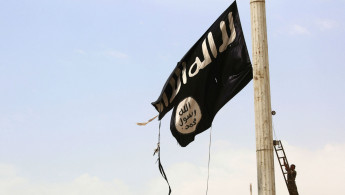Iraq hangs 11 convicted of 'terrorism': security, health sources
Iraqi authorities have executed at least 11 people convicted of "terrorism" this week, security and health sources said Wednesday, with rights group Amnesty International condemning an "alarming lack of transparency".
Under Iraqi law, terrorism and murder offences are punishable by death, and execution decrees must be signed by the president.
A security source in Iraq's southern Dhi Qar province told AFP that 11 "terrorists from the Islamic State group" were executed by hanging at a prison in the city of Nasiriyah, "under the supervision of a justice ministry team".
A local medical source confirmed that the health department had received the bodies of 11 executed people.
They were hanged on Monday "under Article 4 of the anti-terrorism law," the source added, requesting anonymity due to the sensitivity of the issue.
All 11 were from Salahaddin province and the bodies of seven had been returned to their families, the medical official said.
Iraqi courts have handed down hundreds of death and life sentences in recent years for people convicted of membership in "a terrorist group," an offence that carries the death penalty regardless of whether the defendant had been an active fighter.
Iraq has been criticised for trials denounced by rights groups as hasty, with confessions sometimes said to have been obtained under torture.
Amnesty in a statement on Wednesday condemned the latest hangings for "overly broad and vague terrorism charges".
It said a total of 13 men were executed on Monday, including 11 who had been "convicted on the basis of their affiliation to the so-called Islamic State armed group".
The two others, arrested in 2008, "were convicted of terrorism-related offences under the Penal Code after a grossly unfair trial," Amnesty said citing their lawyer.
The Britain-based rights group denounced "a disturbing lack of transparency regarding executions in Iraq in recent months".
"The Iraqi government must immediately establish an official moratorium on executions and work towards abolishing the death penalty entirely," said Razaw Salihy, Iraq researcher at Amnesty.
In late January, UN experts looking into capital punishment in Iraq expressed their "deep concern at reports that Iraq has begun mass executions in its prison system".
The independent experts, who are appointed by the UN Human Rights Council but do not speak on its behalf, mentioned in their statement executions carried out late last year in the same Nasiriyah prison.
The statement said that "13 male Iraqi prisoners - previously sentenced to death - were executed on 25 December 2023", calling it "the largest number of convicted prisoners reportedly executed by the Iraqi authorities in one day" since November 16, 2020, when 20 were executed.
The IS group overran large swathes of Iraq and neighbouring Syria in 2014, proclaiming its "caliphate" and launching a reign of terror.
It was defeated in Iraq in 2017 by Iraqi forces backed by a US-led military coalition, and in 2019 lost the last territory it held in Syria to US-backed Kurdish forces.
But its remnants continue to carry out deadly hit-and-run attacks and ambushes, particularly from remote areas and desert hideouts.





 Follow the Middle East's top stories in English at The New Arab on Google News
Follow the Middle East's top stories in English at The New Arab on Google News


